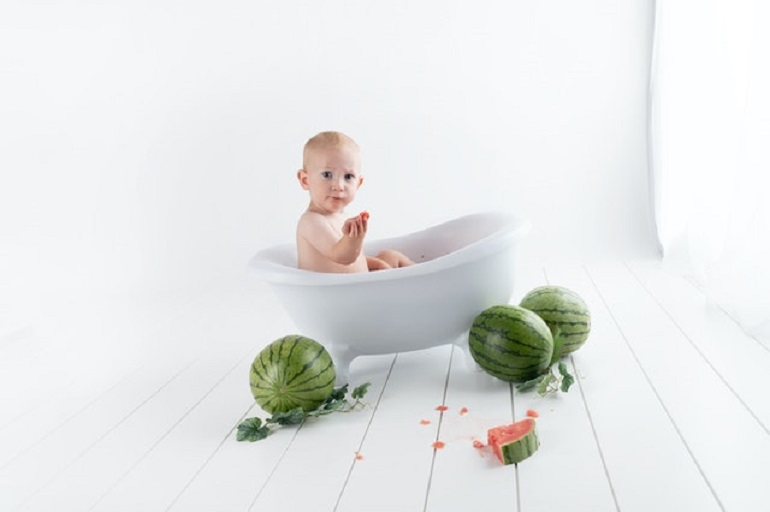Perhaps one of the most pressing topics on a new parent’s mind is how to properly feed their baby. When you think about it, the habits you’re establishing now will have a huge impact on your child for the rest of their life! This is why establishing good nutrition early on is so crucial. It is well worth the effort.
However, it can feel overwhelming knowing where to start. With so much conflicting information out there, how do you know what’s really best for your child?
With that in mind, we’ve put together an essential guide on how to start your child off early with a foundation of food nutrition.

Know When to Introduce Which Foods
First things first, you’ll want to know the timeline of when to introduce which foods to your child. Here’s a basic list of what to keep in mind:
- Birth to 4 Months: Your baby will have a diet of strictly breastmilk, formula, or a combination of the two. This will depend on mom’s preferences or ability to breastfeed or pump. Breastmilk is awesome! Formula is awesome! Feeding your baby is awesome! As long as your baby is getting one of the two, you’re doing a great job.
- 4 Months: Starting anywhere between four and six months, your baby will be ready for pureed foods, commonly referred to as solids. Try at four months, and if she doesn’t seem interested, don’t stress too much. Try again in a week and see how she feels. By six months, she will definitely be ready. In the beginning, give her one kind of food for three days to make sure she’s not allergic. Move on to another food and repeat the process. Your baby still needs breastmilk or formula.
- 8 Months: It’s time for small finger foods! Start with soft fruit, melons, avocados, broccoli, cubes of cheese, and eggs. A real treat for your baby would be some broken-up pieces of homemade muffins, puffs, or dry cereal. Your baby still needs breastmilk or formula.
- 12 Months: Continue introducing them to more and more finger food. As they get more teeth breaking through, you can give them bigger and bigger foods. At twelve months, you’re also able to transition them from breastmilk or formula to whole cow’s milk.

Encourage Independence
Once your baby is old enough to start working on those finger foods, encourage them to do so independently. Even before that, if you’re feeding them solids and they reach out for that spoon, let them try it out on their own!
We understand that this can be challenging. The mess can be a lot to handle, especially knowing that you could do it so much more efficiently! However, giving them the opportunity to practice on their own will help them to hone their skills, something you’ll be very grateful for in a few months!
A quality bib with a pouch will prove to be very helpful during this stage. These cool silicone baby bibs are the perfect option.
Maintain a Meal Schedule
While snacks can be a life saver at times, avoid constant snacks. Maintain a meal schedule to ensure that your child is getting all the nutrients they need. A balanced plate with protein, veggies and fruits, and some grains are a must for your little one! We’re not saying that some puffs or an applesauce every now and then aren’t allowed. Just make sure they’re getting 3-5 meals a day!
Prioritizing Your Child’s Health
We understand that your child’s health is one of your top priorities. Understand their needs, make a schedule, and stock up on the necessities to ensure that your child is getting everything they need to grow up big and strong.

